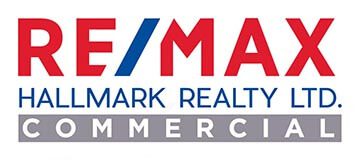How to Meet and Catalyze ESG Expectations in Canadian Real Estate

How to Meet and Catalyze ESG Expectations in Canadian Real Estate
2023 promises to be another year with heightened focus on environmental, social and governance (ESG) compliance. The federal government’s 2050 pledge of achieving net zero status – either generating no greenhouse gas emissions or offsetting such emissions through tree planting or capturing carbon before it’s released into the air – is catalyzing the need for clean technologies and sustainable procurement.
With buildings, including homes, accounting for 12% of Canada’s GHG emissions, many property owners are utilizing ESG strategies to not only align with financial returns but with societal values as well. This behavioural shift will augment the value of ENERGY STAR® and GRESB certifications and industry standards for measuring and benchmarking energy performance across the country. For example, next year British Columbia will require ENERGY STAR certification for commercial buildings.
nvestment and community eyes on ESG
In this environment, tenants and real estate investors are casting an increasingly critical eye on ESG performance and risk. Ratings agencies such as Moody’s and S&P are also assessing corporations’ degree of ESG implementation more deeply. That means the focus on including investor relations because of the connection between ESG performance and capital markets.
“Buildings in several leading markets will need to achieve energy efficiency targets and greenhouse gas emission limits as early as 2024 or face significant fines. As investors increasingly demand newer, greener, and more energy-efficient buildings, particularly offices … older ‘brown’ buildings will see their values discounted, and their owners have trouble selling them,” says PwC and Urban Land Institute in their Emerging Trends in Real Estate 2023 report, which encompasses Canada and the U.S.
Leverage tech for compliance
With the ESG focus expanding beyond building operations to all aspects of portfolio management, many property owners are turning to advanced technology suites to monitor consumption and control costs. Implementation of a viable energy management strategy often begins with understanding and documenting energy consumption across a portfolio.
This is when software solutions that automate the management and analysis of utility expenses, utility bills and energy information deliver value. Property managers and operators can get valuable insight into energy consumption without having to dig through spreadsheets looking for outliers or missing bills.
Energy intelligence technology equally extends this capability, enabling building owners to identify incremental but powerful changes by comparing demand against consumption charges made by their utility providers. Another element of an effective energy strategy involves energy automation technology that detects faults and providing alerts on HVAC systems. Such systems can automate heating and cooling to optimize tenant comfort and minimize unnecessary costs.
The right energy management technology is built to help businesses deliver best-in-class performance.
Portfolio-wide visibility made easy
Energy management platforms are more than a dashboard or app. The solution you implement should seamlessly gather your whole building data and generate full visibility into energy consumption, from the building meter level, property-level analytics and benchmarking, all the way to owners, investors or lenders seeking insight into a portfolio’s energy risk. A site manager, for example, can compare a building’s energy performance against similar buildings in their region in real time, without having to wait for a certification process or energy audit.
The Yardi energy team has seen the benefits of advanced energy management software suites in property management organizations across Canada, including:
- 10-20% portfolio-wide savings, with low upfront costs and minimal tenant disruption.
- Higher property values arising from more efficient energy management
- A better occupant experience and higher retention with heating or cooling controlled with the minimum amount of energy required
- More effective property marketing with demonstrable operational improvements providing a competitive advantage
- Sustainability compliance that satisfies regulators, enables compliance with energy-use disclosure requirements and minimizes risk for potential investors.
As Emerging Trends in Real Estate 2023 notes, “At a time when financing is both less available and more expensive, companies with a strong ESG track record will have an advantage in attracting investment from institutional players and sourcing new forms of capital—such as green bonds and sustainability-linked loans—that continue to grow in Canada.”
Efficient energy management boosts business returns
Every participant in real estate management, from property managers to investors, seeks to reduce risk, increase efficiency, attract tenants and produce returns. A key element to achieving these outcomes is improving ESG performance. Just as a property management organization can’t operate with inadequate financial data, it can’t produce results with antiquated energy data or technology. Advanced energy management technology provides complete visibility and insight, drives informed decision-making, enables efficient portfolio management and adds value while reducing risk.
Source Real Estate News EXchange. Click here to read a full story










margin level formula binance | Apr 4,2023
Your article helped me a lot, is there any more related content? Thanks!